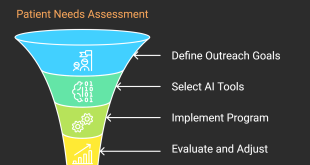Nerve pain, also known as neuropathic pain, can be a challenging condition that not only causes physical discomfort but can also significantly impact one’s ability to get restful sleep. The relationship between nerve pain and sleep disturbances is complex, with each exacerbating the other in a vicious cycle. In this article, we will delve into the intricacies of how nerve pain affects sleep, explore effective strategies for managing pain at night, and discuss various lifestyle adjustments and treatments that can help individuals with nerve pain achieve better rest. By understanding the connection between nerve pain and sleep disruptions, we can discover actionable solutions to improve sleep quality and overall well-being.
Understanding Nerve Pain and its Impact on Sleep
What is Nerve Pain?
Nerve pain, also known as neuropathic pain, is a type of pain that occurs due to damage or dysfunction in the nervous system. It can feel like a burning, shooting, or electrical sensation and is often chronic in nature.
How Nerve Pain Affects Sleep
Nerve pain can significantly impact sleep quality by causing discomfort and making it difficult to fall or stay asleep. The constant pain can lead to frequent awakenings during the night, resulting in fragmented and inadequate rest.
The Connection Between Nerve Pain and Sleep Disturbances
Neurological Mechanisms at Play
Neurological mechanisms link nerve pain and sleep disturbances, with pain signals interfering with the body’s ability to relax and enter restful sleep stages. This cycle can exacerbate both pain and sleep issues.
Research Studies on Nerve Pain and Sleep Quality
Numerous studies have shown a bidirectional relationship between nerve pain and poor sleep quality, highlighting the importance of addressing both aspects to improve overall well-being and quality of life.

Effective Strategies for Managing Nerve Pain at Night
Pain Management Techniques
Managing nerve pain at night may involve a combination of medications, physical therapy, heat or cold therapy, and relaxation techniques to alleviate discomfort and promote better sleep.
Sleep Hygiene Practices for Nerve Pain
Incorporating good sleep hygiene practices such as maintaining a consistent sleep schedule, creating a relaxing bedtime routine, and optimizing sleep environment can help individuals with nerve pain improve their sleep quality.
Creating a Sleep-Friendly Environment for Individuals with Nerve Pain
Optimizing Bedroom Setup
Optimizing the bedroom environment by reducing noise and light, ensuring comfortable room temperature, and investing in supportive pillows or mattress can create a conducive space for restful sleep despite nerve pain.
Choosing Supportive Sleep Surfaces
Selecting a mattress and pillows that provide proper support and cushioning for areas affected by nerve pain can help alleviate pressure points and enhance comfort, allowing for better sleep quality and reduced pain impact.

Lifestyle Changes and Habits to Improve Sleep Quality
Are sleepless nights becoming the new normal due to nerve pain? Don’t worry, making small lifestyle changes can make a big difference. Start by creating a sleep-friendly environment. Keep your bedroom cool, dark, and quiet. Consider using earplugs or a white noise machine to drown out distractions.
Limit screen time before bed. Those late-night scrolling sessions might be harming your sleep quality. Instead, try reading a book or practicing relaxation techniques like deep breathing or gentle stretching.
Exercise and Movement for Nerve Pain Relief
Who knew that breaking a sweat could actually help alleviate nerve pain and improve sleep? Regular exercise releases feel-good endorphins, which can help combat pain and promote better sleep. Opt for low-impact activities like walking, swimming, or yoga to start. Remember, consistency is key. Aim for at least 30 minutes of movement most days of the week.
Dietary Adjustments to Promote Better Sleep
What you eat can impact how well you sleep. Avoid heavy, spicy, or acidic foods close to bedtime, as they can trigger discomfort and disrupt your sleep. Instead, choose sleep-friendly snacks like nuts, cheese, or a small serving of complex carbs to help stabilize blood sugar levels. Consider incorporating sleep-promoting foods like cherries, almonds, or kiwi into your evening routine.
Alternative Therapies and Treatments for Nerve Pain and Better Sleep
Looking for a more holistic approach to managing nerve pain and improving your sleep? Alternative therapies might just be the ticket. Acupuncture and acupressure are ancient practices that can help alleviate pain by targeting specific pressure points in the body. Many people find relief and better sleep quality through regular sessions.
Herbal remedies and supplements can also work wonders. Melatonin, valerian root, and magnesium are popular choices for promoting relaxation and aiding in a restful night’s sleep. Just remember to consult with a healthcare provider before adding any new supplements to your routine.
The Role of Medications in Managing Nerve Pain and Sleep Disruptions
When all else fails, prescription medications may be necessary to manage severe nerve pain and sleep disturbances. Pain medications can provide short-term relief, but they may come with side effects that impact sleep quality. Work closely with your healthcare provider to find the right balance.
For more chronic nerve pain and sleep issues, prescription options like anticonvulsants or antidepressants may be recommended. These medications can help manage pain symptoms and improve sleep patterns over the long term. Remember, finding the right medication and dosage may require some trial and error, so be patient and communicate openly with your healthcare team.In conclusion, addressing nerve pain and its impact on sleep requires a comprehensive approach that considers both physical discomfort and sleep hygiene practices. By implementing the strategies and recommendations outlined in this article, individuals dealing with nerve pain can work towards better sleep quality and overall improved well-being. With a combination of pain management techniques, lifestyle adjustments, and potential therapies, achieving a restful night’s sleep is within reach for those navigating the challenges of nerve pain.







